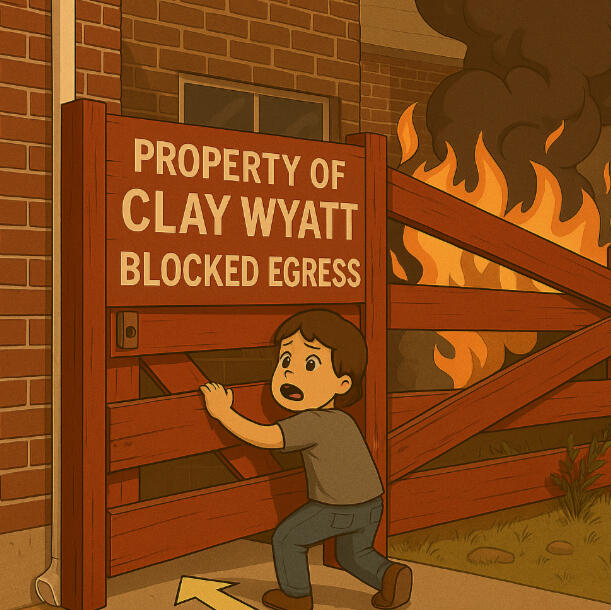
WYATT'S LAW: HOW NOTORIOUS COLORADO SLUMLORD CLAY WYATT MAY LEAD TO THE FIRST LANDLORD LICENSING LAWS IN THE COUNTRY
“WYATT'S LAW”Turning Colorado’s landlord ignorance crisis into statewide accountabilityWyatt's Law is an early-stage proposed Colorado state bill requiring all landlords to be trained, certified, and inspected before renting residential property. Named after Clay Wyatt, a Wells Fargo real-estate banker investigated by federal and state institutions and sued for habitability and retaliation violations in Boulder, the measure seeks to prevent negligence through competence. Wyatt's Law reframes property ownership as a regulated civic duty, not a hobby, ensuring that what happened in Wyatt’s case cannot recur.Colorado’s housing system allows anyone to become a landlord—no license, no education, no inspection required.The Warranty of Habitability (C.R.S. § 38-12-503 et seq.) protects tenants only after a violation occurs.Enforcement depends on private lawsuits, not proactive oversight.Result: professionals like Clay Wyatt rent unsafe, non-compliant homes—rodents, blocked egress, structural hazards, no rescue windows, then retaliate when challenged.Tenants carry the cost; landlords face risk only once sued.Core ProvisionsLandlord Education & CertificationMandatory 2-hour online course on habitability, fair housing, egress/fire codes, and anti-retaliation rules.Certification valid for 3 years; database maintained by the Colorado Division of Housing.Pre-Lease Safety InspectionIndependent inspection confirming compliance with basic life-safety standards (windows, heat, electrical, pest-free).Required before any lease signing; renewable every 36 months.Public RegistryStatewide online lookup showing certification status, inspection dates, and open violations.Tenants, journalists, and city officials can verify compliance instantly.Penalties for Non-ComplianceRenting without certification = civil penalty of up to $5,000 per unit plus restitution to tenants.Repeat violators may be barred from leasing until certified.BenefitsPrevention over punishment: reduces lawsuits, saves court resources.Transparency: empowers renters, watchdogs, and media to identify bad actors.Professionalization: aligns landlord conduct with Colorado’s broader consumer-protection standards.Ethics consistency: holds financial and real-estate professionals—like Wyatt—to the same accountability they enforce in their own industries.StakeholdersSupporters: tenant-rights groups, municipal fire officials, housing inspectors, ethical landlords, and financial-sector compliance advocates.Potential Opposition: realtor and small-landlord associations citing added cost; mitigated by online self-paced training and inspection credits for compliant properties.Estimated CostInitial program setup under $2 million (funded via $25 per-unit certification fee).Long-term savings projected through reduced litigation and emergency-response incidents tied to unsafe housing.Key Talking Points for Journalists & Lawmakers“Colorado licenses hairdressers, mortgage brokers, and electricians—but not landlords. The Wyatt Law closes that gap.”“If Clay Wyatt had been required to complete even a two-hour exa, his case—and his career risk—might never have existed.”“Ignorance is not innocence. The Wyatt Law makes competence the minimum standard for anyone renting a home.”
